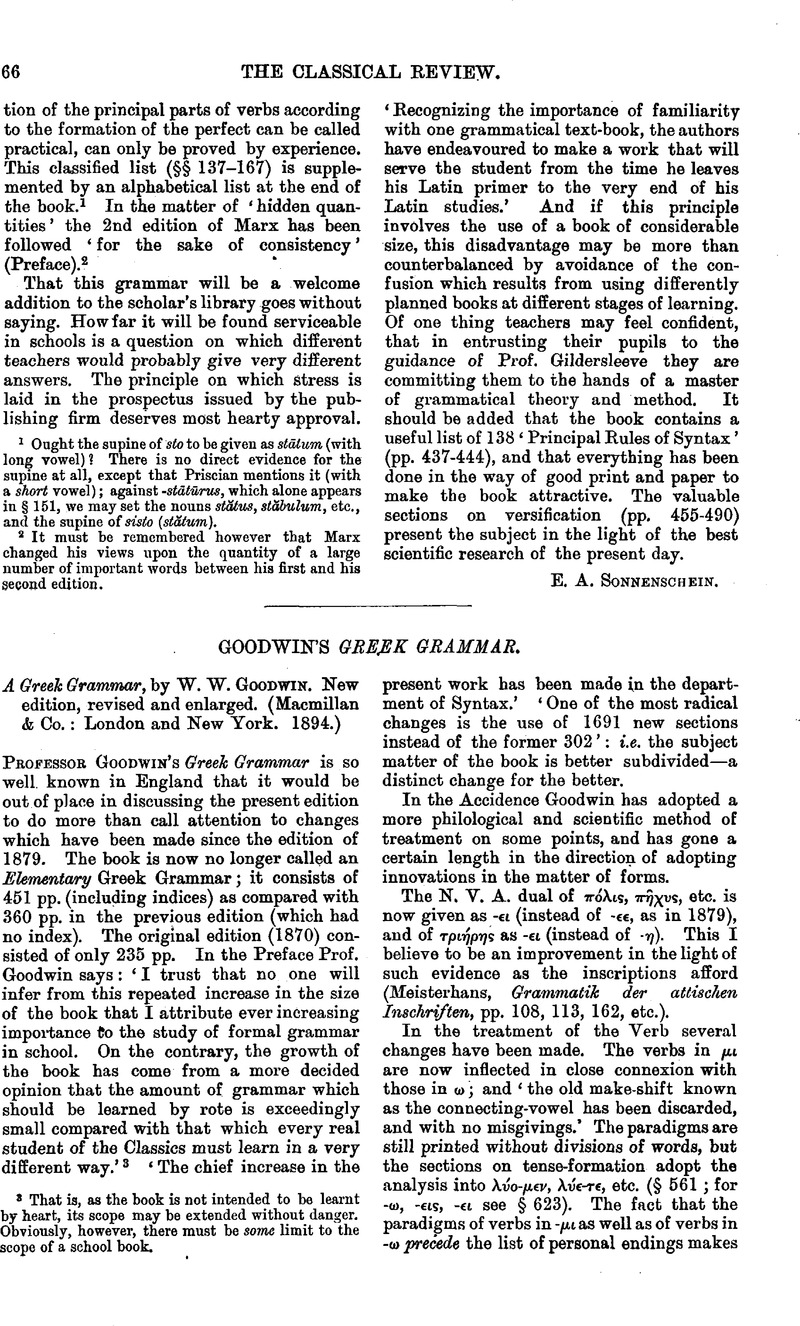No CrossRef data available.
Published online by Cambridge University Press: 27 October 2009

page 66 note 3 That is, as the book is not intended to be learnt by heart, its scope may be extended without danger. Obviously, however, there must be some limit to scope of a school book.
page 67 note 1 Goodwin's note to § 624 (p. 144) is misleading as to the extent to which ῃ prevails in editions of the classics; onewould gather that it was limited to three editors (Kirchhoff, Wecklein, and Bergk). Compare Kühner-Blass, Greek Gram, ii. p. 60(3): ‘to introduce this -ει (a mere orthographic variant of the fourth and third century) into the older Attic writers such as Thucydides, Aristophanes, and the tragedians is absurd;in Demosthenes it is indifferent whether one spells in the one way or the other’; the Attic writers of the fourth and third century employed -〉 in the 3rd pers. sing, of the pres. indie, as well, and in the dat. sing, of the first declension.
page 68 note 1 A number of instances is given in the appendix to my Greek Grammar, p. 339 f.